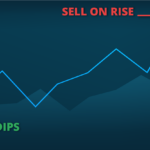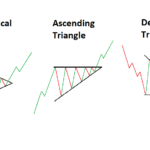You’ve done your research, you’ve learned what you can about the forex marketA location or entity where people and entities can negotiate and trade assets of value., and now you’re finally ready to take on that big leap – trading.
While everyone’s trading journey is different, as a traderA merchant who purchases and sells assets or services for profit. In financial markets, the trader b..., you’re probably either a scalp trader or a day trader.
There is no textbook definition of what one or the other is, but while the line distinguishing them may be blurry, there are distinct aspects that set them apart.
So what’s the difference between scalpingOpening and closing positions rapidly with the intention of locking in small profits. and day tradingPratique de trading consistant à ouvrir et à fermer des positions le même jour et principalement ...? Why does it matter?
A Tale of Two Traders
A day trader can be defined as someone who doesn’t carry their trades overnight and close their positionAn open trade or transaction. A position can be long (a contract to buy the asset) or short (a contr... within the day.
On the other hand, a scalp trader is someone who enters and exits the market fast, which means they hold their position only for a few seconds up to several minutes.
These two definitions alone, while telling, don’t paint the whole picture of what sets one apart from the other or what makes their distinction significant.
Hence, it’s important to dive deeper in order to understand the difference between scalping and day trading and which one you fall into.
Timeframe Difference
As mentioned above, the main distinguishing factor between a scalper and a day trader is the timeframe or how long they hold their trading position.
Scalpers trade in very short timeframes following short period charts, such as 1-minute charts, 5-minute charts, or transaction-based tickAn asset’s minimal unit of measurement and price change. charts, to study price movement and will usually make multiple trades in a single trading session.
On the other hand, as their name suggests, day traders hold their trades for several hours but not more than one full trading day.
Even with the timeframe difference, which plays a crucial role for any trader hoping to make a mark in the market, scalpers are sometimes called day traders because they both do not hold their position for more than a day.
This is understandable because, in essence, all scalpers are day traders, but not all day traders are scalpers.
This leads us to the next main pointThe unit of price change for bonds (1%), futures (0.01%), shares ($1) and mortgage fees (1% of the p... why scalping is fundamentally different from day trading.
Same Goal, Different Styles
“People trade because they want to earn a profit” is a universally accepted goal of trading, but in reality, it’s actually way more complicated than that.
You may ask why would it matter if you scalp or day trade as long as you earn something, but the thing is, it matters because not all people have the same preference towards risks and rewards.
To put it in a simple and easy-to-understand equation, you can look at scalping vis-a-vis day trading this way:
- Scalping – more frequent trades, smaller wins, lesser risks
- Day Trading – less frequent trades, bigger wins, higher risks
As you can see, both trading strategies let you earn if you play your cards right, but it all boils down as to how small or how big you want to go, how often you want to be looking at the market, and how tolerant your riskThe level of deviation of past returns and/or losses on an asset from the mean. Usually, the higher ... appetite is.
Market Analysis for Scalpers and Day Traders
We’ve previously mentioned that scalpers are essentially day traders who trade at smaller timeframes and more frequent intervals.
In essence, both are short-term trading methods, which brings us to our second to the last point: what kind of market analysis works for scalpers and day traders?
As a seasoned or amateur trader who’s serious about your trade (pardon the pun), there’s a good chance that you’ve come across the terms fundamental analysisThe study of an asset’s inherent value. Current affairs and economic data may influence the value ... and technical analysisA technique of forecasting the direction of prices by studying past market behaviour using primarily....
In a nutshell, both are ways to analyze and assess an asset’s price movement in the market.
In technical analysis, you use charts and indicators to find trading events and plan your entry and exit points.
In fundamental analysis, you examine the market using relevant economic and financial data and other factors.
Day traders and scalpers are better off trading and using strategies based on repeating price (chartA visual representation of (usually) numerical data. Financial charts can be either line charts, bar...) patterns that occur every day because their trades are short-term.
Meanwhile, fundamental analysis works for long-term investors who don’t worry about minor intraday price fluctuations.
With that in mind, we’ve come to our last point – are you a scalper or a day trader?
You don’t have to answer that now, but if you have plans of being a serious trader, it’s necessary that you examine what you want to get out of the forex market and what trading methodology you will use to reach your goal.
As a scalper, you want to capture a few pips profit from each trade in order to make incremental gains, which you can then assess at the end of the day, week, or month.
As a day trader, your focus is on the best opportunities of the day, and you hold on longer to a trade for a larger profit target within that day.
Since there is no hard and fast rule as to why you should be one or the other, it pays to try both strategies first to see what works for you because, after all, experience is the best teacher.
With that being said, always keep in mind that trading entails a high level of risks.
If you want to learn more about trading, visit Queensway Academy and sign up for a trading account now.












